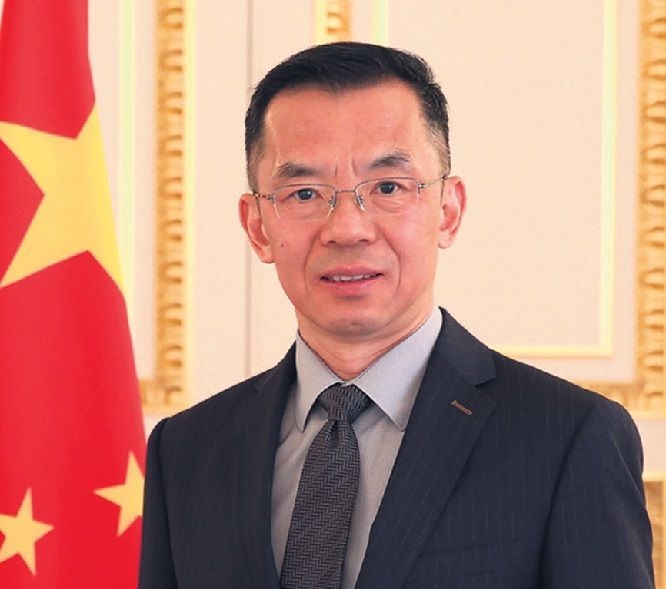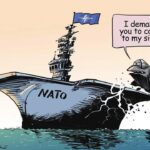The West has been buzzing recently with theories of “de-risking from China” and “reducing dependency on China,” and the essence of these theories is protectionism and Cold War mentality, Chinese Ambassador to France Lu Shaye said in a recent interview. And a key message conveyed by Chinese Premier Li Qiang during his recent visit to Europe is that lack of cooperation is the greatest risk and stagnation is the largest source of insecurity, while choosing China is choosing a promising future, the Chinese diplomat said.
Europe is a major force on the international stage, and should take control of its own destiny in a turbulent and changing world, becoming an independent pole in the multipolar world, according to an interview transcript published by the Chinese Embassy in France on Wednesday.
To achieve this goal, Europe must adhere to strategic autonomy, Lu said. China is Europe’s comprehensive strategic partner, and China-EU relations do not target, depend on, or are constrained by any third party. As the world’s two major powers, markets, and civilizations, what China and Europe advocate, oppose, or cooperate on, has worldwide significance, he noted.
There are a thousand reasons to maintain a good relationship between China and Europe, and not a single reason to damage it. Both sides should focus more on cooperation rather than viewing each other as competitors.
French President Emmanuel Macron is highly regarded in China for his distinct vision and steadfast pursuit of strategic autonomy for France, as well as the EU. Lu said China believes that France will continue to adhere to a policy of strategic autonomy.
Chinese Premier Li wrapped up his visit to Germany and France, his first overseas visit since taking position, and returned to Beijing on June 24. During his trip, Li stressed that China will continue to open up and improve its business environment, and called on China and Europe to rise above differences, demonstrating the importance China attaches to the European market in an era of heightening geopolitical tensions.
Risk prevention and cooperation are not mutually exclusive, and as Premier Li stated, interdependence is an inevitable result of economic globalization, but this dependence is a “sweet dependence,” the Chinese envoy said, noting that this kind of dependency leads to higher efficiency and more benefits, not risks.
China has maintained its position as the world’s largest trading nation in goods for six consecutive years and is deeply embedded in global supply chains, yet we never advocate so-called “de-risking,” and there are no fundamental conflicts of interest between China and France, or China and Europe, Lu pointed out.
Our complementary economic advantages and high levels of political mutual trust allow us to see stability, certainty, and common development opportunities in our mutual dependence, rather than risks, he added.
In 2022, trade between China and Europe reached $847.3 billion. Facts have proven that as two major markets achieving mutual development and two partners in win-win cooperation, conducting trade and investment cooperation serves the common interests of both sides, the Chinese diplomat said.
“We are pleased to see a positive response from Europe to this. The leaders of France and Germany have expressed their welcome to China’s development and prosperity, and oppose any form of ‘decoupling’ or ‘cutting off supply chains,’ saying that ‘de-risking’ does not mean ‘de-China,'” Lu said.
Business sectors in both countries have also expressed optimism about the prospects of China’s economic development. In the first quarter of this year, French and German investment in China increased by 635.5 percent and 60.8 percent year-on-year, respectively, Lu noted.
China is committed to promoting high-quality development and a high level of opening up to the outside world. We are willing to join hands with France and Europe to counter the anti-globalization trend, oppose “decoupling and cutting off supply chains,” maintain mutual openness, and jointly safeguard the stability and smooth operation of global industrial and supply chains, he said.
(Global Times)




